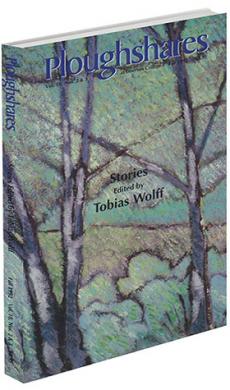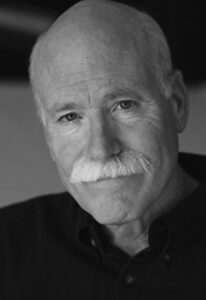rev. of Two Trees by Ellen Bryant Voigt
Twin to the tree whose fruit Eve first tasted, and visible only after she ate, is the tree of immortal beauty, "hung with sweet fruit; / fruit that made the birds nesting there / graceful, brightly plumed and musical," writes Ellen Bryant Voigt in the title poem of her fourth and most overtly philosophical collection. Voigt uses lyric poetry to address epic questions of fate and will, drawing as she has done before on classical mythology and the Bible, family life and life observed with the eye of a scientist. Truth is what she's after as she explores the hungers of consciousness, writing in "
Variations: Thorn-Apple": "If truth is not a thing apart from me, / then I don't want it."
Two Trees celebrates and honors the life of the mind "at work, at play" — animated by the aquarium's eagle ray, by tapestries on Avenue des Gobelins, and, in Voigt's most vivid and passionate poems, by the transcendent power of music: The day is foul — a thin sleet falling everywhere / . . ./ Inside the studio, it's high summer, / eighteenth-century rational Germany. / On the open score a meadow blooms . . ." Music is vessel and pole star, magic cloak and finger-cracking harness; yet, in "
Variations: At the Piano," Voigt observes, "After a life of music the musician said, / ‘But music, music has nothing to do with life.’"
Nor can mind, however adept at transport, avoid the stall of "Priam looking down from the city wall, / Echo near the pool, Charles Bovary," or the homely strategy fixed by two boys on a playing field, "already set in their early victories, / one at the prow, one at the wheel" ("
Variations: Thorn-Apple"). Voigt accommodates the complex vision of a twentieth-century rationalist through a series of variations following several key poems. Borrowed from music, which, like poetry, can unfold only in time, the variations offer a garden of forking paths, connecting with and amplifying the lyric moment first presented in each title.
Like Keats, Voigt pants after beauty; poems like "Herzenleid" shimmer with a synaesthesia of visual images rich in sound. The moan implicit in ". . . I sat with my life-mate, the two of us / two loons in brackish water . . ." exemplifies the engagement of sound and sense which makes
Two Trees such an absorbing series of meditations on the nature of character and destiny, life and art.
Joyce Peseroff's most recent book of poetry is A Dog in the Lifeboat,
published by Carnegie Mellon University Press.

